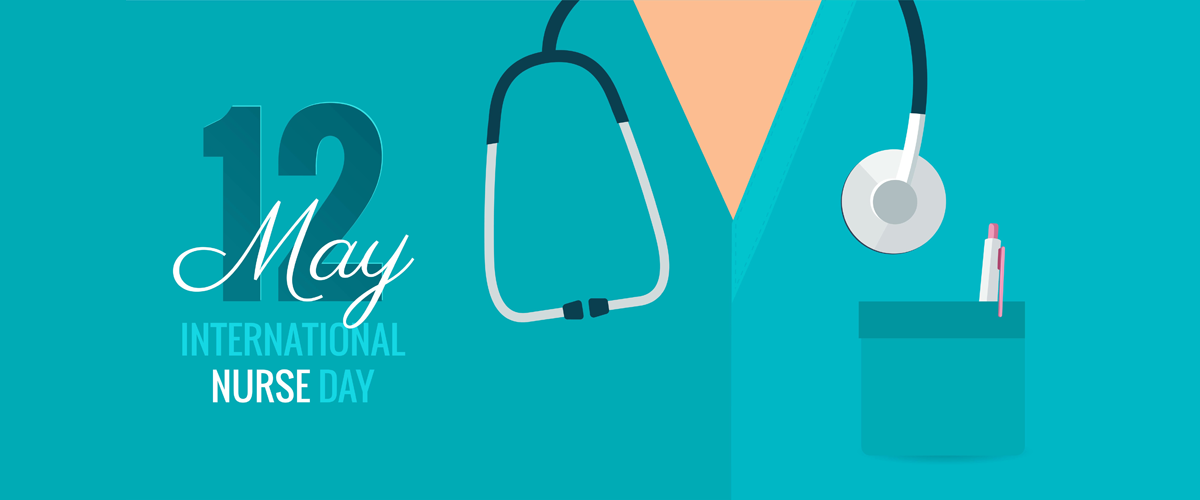International Nurses Day (IND) is celebrated around the world each year on 12 May. The theme for 2023 observance is 'Our Nurses. Our Future'. This theme sets what the International Council of Nurses (ICN) envisions for the future of nursing, as a way to help address the global health challenges and improve global health for all.
From the moment we are born, to the last days of our lives, there will be multiple times when we will need nursing assistance. Nurses come to our aid when we are at our most vulnerable. They are more than willing to not just give us medical support, but also temporarily replace our mothers, friends, life coaches and even our confessors. For that, it is necessary to highlight the importance of nurses spending time with patients.
So, what happens when all nurses are exhausted and the population keeps growing in numbers while aging at the same time?
Their absolute vocation for helping and improving people´s health shows in their devoted care and through their smiles. However, this is often just the visible façade. Behind the scenes, there are long hours of studying and seeking to understand the human body, with all its connections and disconnections. Whether it is the fast dosage calculation of a life-saving drug, the thorough cleaning of a deep wound or the hawk-eye precision of an injection well placed, there is hardly ever time for relaxed thinking. Nurses are people of action.


But there is only so much action one nurse can perform. And beyond that limit, that nurse must begin to prioritise their tasks. It’s just not possible to reach it all. We must never forget that nurses are also humans with connections and disconnections.
Why do so many nurses leave the profession?
We are currently seeing the first signs of a problem that does not show any signs of slowing down. There is an imbalance between the number of dependent patients who require nursing care and the actual number of nurses required to perform this job.
This is not just today´s problem. The ‘COVID years’ have not made nursing very attractive to future students. Meanwhile, nurses’ working conditions are not good enough and the physical and mental burnout is clear. Furthermore, enduring endless hours with personal protective equipment (PPE) on at all times, giving it their all and still watching the death toll rise every day, paints a very realistic picture of the risks nurses face at any given time. As such, the lack of nursing students today makes the future of patient care unsustainable, at least from the healthcare perspective.
The nursing sector should learn from the lessons of the COVID-19 pandemic and translate these into future actions that can help ensure nurses are protected, respected and valued.
The future of healthcare
It is calculated that by 2030, 371,000 more beds will be needed to meet the increasing demand from ageing citizens in Germany alone.¹ To cover those needs, Germany will need 157,000 more nurses and 331,000 more healthcare workers.²
This is not an isolated case. Similar statistics indicate the future of healthcare across Europe. It is clear that nurses are irreplaceable but there is still a lot we can do to support our nurses in closing the gap between society´s needs and the availability of nurses while maintaining an adequate standard of care.
The medical devices industry has a bright future ahead, with products dedicated to patient care to optimise nurses’ time and effort, as they perform certain tasks. It seems logical, therefore, that every professional should be given the opportunity to work at the highest level with the right tools. This approach helps define the standard of care our society needs.
From being an intensive care nurse to working in the medical devices industry
As a former intensive care nurse, it is very difficult to detach myself from the current situation. In some way, it would be easier if I could just roll up my sleeves and go back to nursing. If I did, I know I would be helping with the numbers—by one, to be exact; just one pair of hands.
However, life is full of choices to be made and, working at Medline, I know I can facilitate every nurse´s daily job with products that help them perform their tasks in the safest and most efficient way. I still roll up my sleeves every day for work, only now, my contribution is part of the future of our healthcare system.
Medline’s medical devices help improve patient care and enhance the quality of people’s lives. I am proud to work for a company that has nurses at the centre of every decision, innovating every day in the medical devices industry to elevate the standard of care.
Medline´s long-term strategy goes hand in hand with our worldwide interest: our nurses, our future.




Nuria Alonso
Product Manager Personal Care, Repositioning & Offloading, Medline Europe
Nuria, originally from Spain, studied nursing and developed her 15-year long career between Spain, Switzerland and The UK before joining Medline in 2018. Since then, her clinical background has provided valuable insights and helped support the sales team in Spain, firstly as Clinical Sales and, after that, as Local Product Manager. As a passionate advocate for improved patient care, she is currently managing the personal care, repositioning & offloading and advanced wound care divisions at the European level. Learn more on LinkedIn.
References:
1. https://www.ncbi.nlm.nih.gov/books/NBK545718/#:~:text=The%20total%20number%20of%20practising,reached%205.5%20million%20in%202016
2. https://newsroom.accenture.com/industries/health-public-service/new-research-shows-germanys-health-system-will-need-capacity-for-3-million-patients-entering-nursing-homes-and-in-patient-facilities-by-2030.htm







